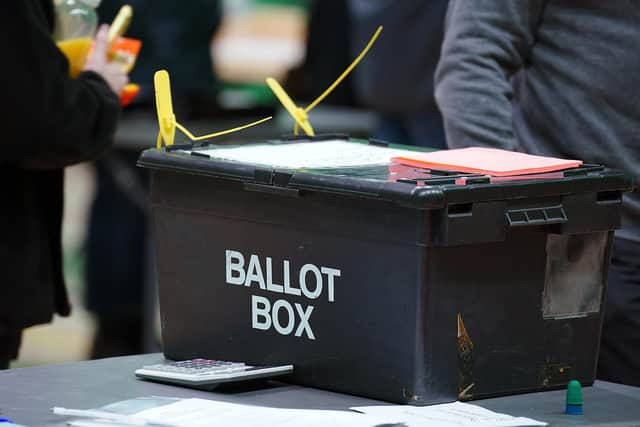First past the post voting system leaves voters without much choice - Yorkshire Post Letters
For the sake of our country and for all of us who live here, I believe that we need to reverse the legacy of successive Tory governments whose political choices have led to a disintegration of essential services and infrastructure, a carbon footprint which is far greater than it could and should be by now, and a dramatic increase in financial inequality, which, as is well documented from research and comparison of different countries in the world, leads to poorer health, more crime, more social conflict and less happiness throughout a population than there is in countries where the gap between rich and poor is small, even when the country overall is not rich like ours.
In this year when it appears that about 50 per cent of the nations in the world are going to the polls, it seems a good time to reflect and compare our own voting system with those of others.
Advertisement
Hide AdAdvertisement
Hide AdClearly we are better off than some in that we have a universal right to vote provided we are over 18 and it is illegal to intimidate people at a polling station, but our antiquated first past the post (FPTP) system is no longer fit for purpose and contributes to some people feeling that there is no point in voting.


So I believe that we need to move forward to a system of proportional representation in line with the majority of other western democracies who have used this system for years.
A Labour party member and friend of mine, summed up Labour's plan of action if they form our next government: to invest in people, in society, in the environment.
I have no disagreement with this principle - but there is another political party who also has a vision of what a better UK would look like and how we might achieve that, and not only in my view does it encompass all of the above, but makes a direct point about the need to understand the interconnectedness of social policy with environmental policy, and the sort of economic policies which would enable a government to invest in those things and – equally as important - to implement the policies in a way that will work.
Advertisement
Hide AdAdvertisement
Hide AdThat party is the Green party, whose policies have extensive – and growing – support throughout the UK. Over the past ten years we have had a shining example in Caroline Lucas of what a Green party MP can look like, and the contribution they can make to parliamentary debate. But the Green party, like other relatively low profile and less well funded parties, have difficulty getting MPs elected in our current system.
At election time we are often urged by constituency political groups who believe they have a fair chance of getting their candidate elected, not to 'split the vote' and to vote for them, even though our allegiance and conscience may lay elsewhere.
Many of us have done it and we all understand that this is one way that voters can and do try to work the FPTP system to achieve a 'less bad' outcome. We call it tactical voting and I have no doubt that in the coming weeks/months, we will hear a lot about this.
In many constituencies, to vote in our elections involves basing your choice on your beliefs and assumptions about who is likely to get more votes and trying to second guess what other voters will do – a form of gambling.
Advertisement
Hide AdAdvertisement
Hide AdThe result is that many people (and I've done it myself) reluctantly don't vote with their conscience, and 'lend' their vote to another candidate whom they wouldn't vote for if they felt they had a choice. This isn't democracy, this is madness.
Comment Guidelines
National World encourages reader discussion on our stories. User feedback, insights and back-and-forth exchanges add a rich layer of context to reporting. Please review our Community Guidelines before commenting.
